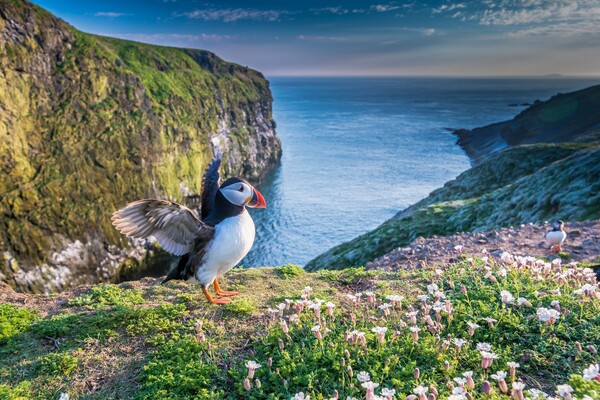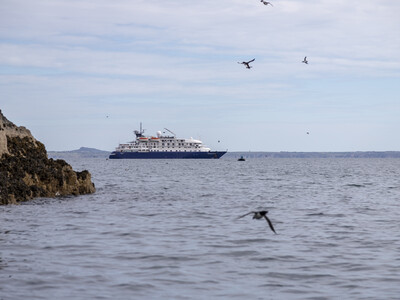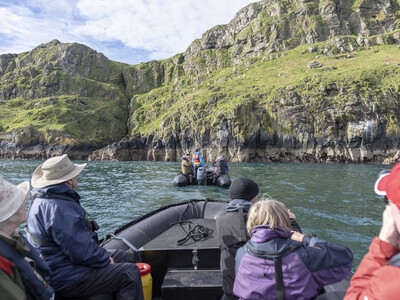The Wildlife Trust of South & West Wales
Wild Islands Appeal – Skomer & Skokholm

The Noble Caledonia Charitable Trust are delighted to have partnered with the Wildlife Trust of South & West Wales, an independent charity with a mission to save wildlife and wild spaces and to make nature part of life, for everyone. The aim of the charity is to create and enhance wildlife havens, create Living Landscapes and Living Seas and manage some of the region’s most precious wild places from magnificent islands to ancient woodlands.


Skomer Puffin & Skomer Campion by Mike Alexander
The Wildlife Trust of South and West Wales manages some of the country’s most precious wild places. From meadows and ancient woodland to islands and the coastline, they manage over 100 reserves including their Wild Islands – Skomer and Skokholm which Noble Caledonia regularly visit during our expeditions around the British Isles.
These two islands are iconic Welsh nature reserves have an international reputation for their exceptional biodiversity, striking landscapes, and cultural heritage. Recognised as Sites of Special Scientific Interest, both islands are a birdwatcher's paradise. The colonies of Manx Shearwater on the islands combined are the largest in the world, and the Puffin, Storm Petrel, Guillemot and Razorbill colonies present a significant proportion of the total population of these species in Britain as a whole.
The Wildlife Trust of South and West Wales is committed to safeguarding these delicate habitats now, and into the future. A full complement of staff is essential to protect seabirds from disturbance and the introduction of non-native predators. Staff and volunteers also carefully manage access for 20,000 visitors a year to ensure that everyone can enjoy and learn about the Islands’ wildlife, whether on the Island, or at home.
Ensuring the smooth running of their incredible Wild Islands is costly. Buildings, machinery, paths and bird hides are regularly battered by storms and need regular repair and maintenance. Their annual seabird monitoring programme is the most important and costly undertaking on the islands. It's an important long-term data set that has been running uninterrupted since 1959 and involves counting all of the seabirds on both islands, to determine the number of seabird breeding sets, the breeding success of seabirds and the adult seabird survival rate.
Understandably, this sort of operation is a huge and costly undertaking. Expenses include the cost of running and operating the boats used to monitor the seabird population, the staff and accommodation costs for experienced and skilled ornithologists, ensuring all staff have good optics and are equipped with reliable cameras, telescopes and seabird hides. All of which are crucial in enabling the seabird monitoring programme can run effectively and is able to continue every year. In doing this, researchers and staff are able to monitor the impact of threats to our seabirds; traditional threats that most people are aware of such as plastic pollution, overfishing and marine heatwaves disrupting their food supply, and the as yet unknown impacts of offshore renewables and bird flu. All of which makes seabird monitoring crucial to ensure the security of the islands, and that they remain the wildlife haven that they are well-known for.
The NCCT will be fundraising in aid of the Wild Islands appeal to help continue to conserve the seabird population. Help us to assist in protecting these islands and their birds today and for the future.


Discovering Skomer aboard the MS Hebridean Sky
How to Donate: If you would like to make a donation you can donate online here.
Alternatively if you would prefer to make a donation by cheque please make it payable to ‘NCCT’ and send it to NCCT, 2 Chester Close, London, SW1X 7BE. If you are eligible for gift aid you can increase your donation by 25% at no extra cost to you by clicking the Gift Aid box in the donation link.





